Nowadays, it feels like everything costs an arm and a leg, from things people do to treat themselves to the daily necessities in life.
The latter is what TikToker Amber Cimiotti discussed in a video that went viral. She shared that in her opinion, people nowadays have to pay for many important things in life that were previously naturally occurring, and quite a few netizens seemed to agree. Scroll down to find Amber’s thoughts below, where you will also find her recent interview with Bored Panda.
Amber believes that many basic human needs have been paywalled in the US

In many cities, getting exercise as you go about your day is not easy, if at all possible

Image credits: Sadettin Dogan / pexels (not the actual photo)
As Americans, we’ve removed everything we actually need in daily life, like exercise, talking to friends, connecting with people, spending time with our kids. We’ve taken all of the naturally occurring things out of life, and made it so that those things can only be achieved by a therapy session, by an activity that we have to pay for.
There’s not many places, neighborhoods and cities where it’s super easy to walk everywhere, where you can get a lot of natural exercise, whether it’s walking to and from your house or to the grocery stores. This just doesn’t exist for most people now, so you have to wake up earlier, on your lunch break or after work, you have to go to the gym so you can get in your exercise.
People often need to pay to get human connection
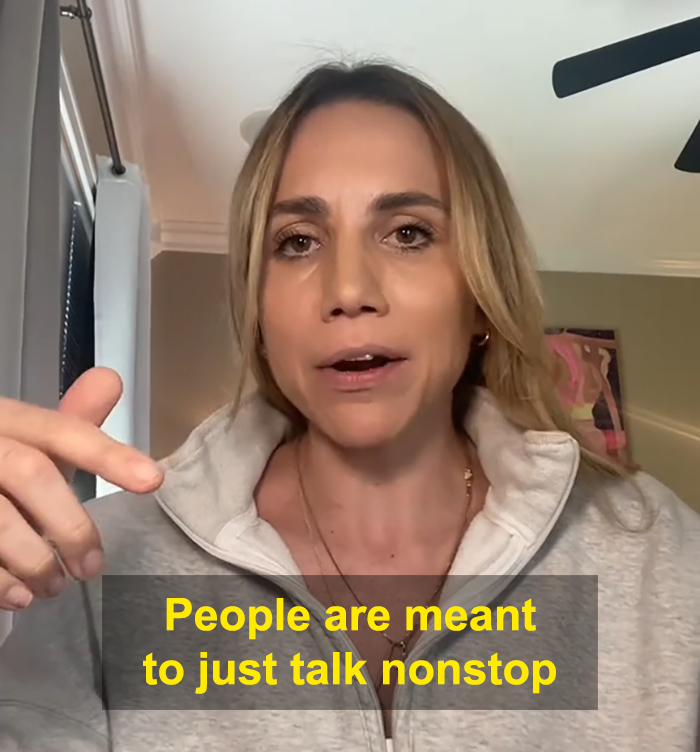
Talking. People are meant to just talk nonstop, but now we live really isolated and then, when you are talking, you’re probably at work in your professional mode. But people are meant to share their struggles, their stories, everyday things constantly, all the time. And we’re not doing that.

Image credits: George Pak / pexels (not the actual photo)
And what do you see happening? Nowadays everybody needs a therapist. Yes, therapy is needed for some things. But most people just need to be talking to people way more. And I don’t mean like trolling on the internet.
Kids’ activities, too, nowadays require more money
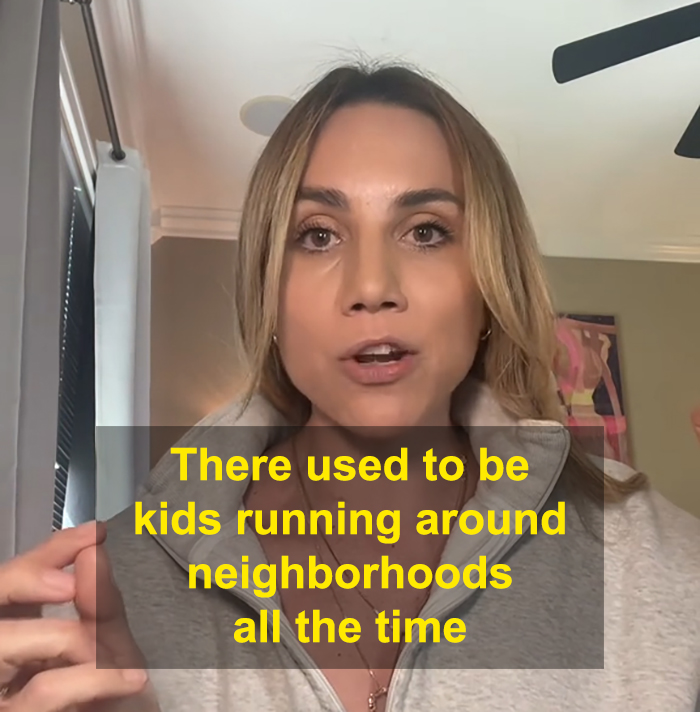
Kid stuff. There used to be kids running around neighborhoods all the time, parents didn’t have to pay all this extra money to do activities so their kids can be involved in things, parents didn’t have to drive all over the place. No, they opened their door and there was kids everywhere.

Image credits: Antonius Ferret / pexels (not the actual photo)
But now that doesn’t exist. So we do need to pay for activities. We need to do special things, we need to be driving our kids all around.
Eating healthy in the US, according to Amber, is a part-time job
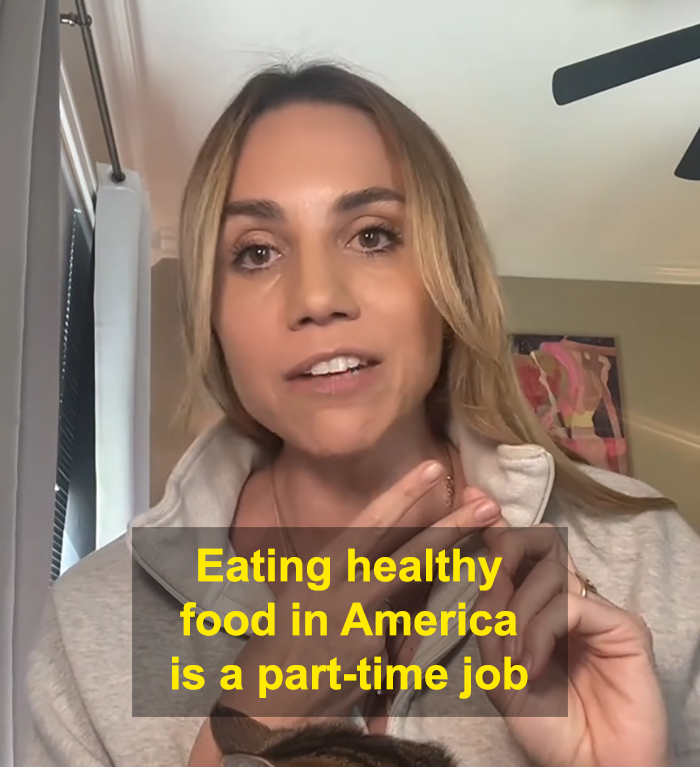
Eating healthy food in America is a part-time job, if not a full-time job, between trying to find the right food, reading all the labels, understanding, reteaching what minerals and herbs and all these natural things in earth that help us. It would all be so much easier if we just had healthy food in general.

Image credits: Franki Chamaki / unsplash (not the actual photo)
The point is when things don’t happen naturally in your day and you need to take extra energy to achieve basic things like healthy food, exercise, talking to friends, which helps regulate emotions and things like that. When you have to build those into therapy sessions, exercise sessions, hobbies, reading 17 books, of course you’ll be tired.
The TikToker’s video was viewed nearly 440k times on the platform
@ciaoamberc #america #culture #family #friends #parenting #society ♬ original sound – Ciao AmberC
The distribution of what Americans spend most of their money on has changed over the years
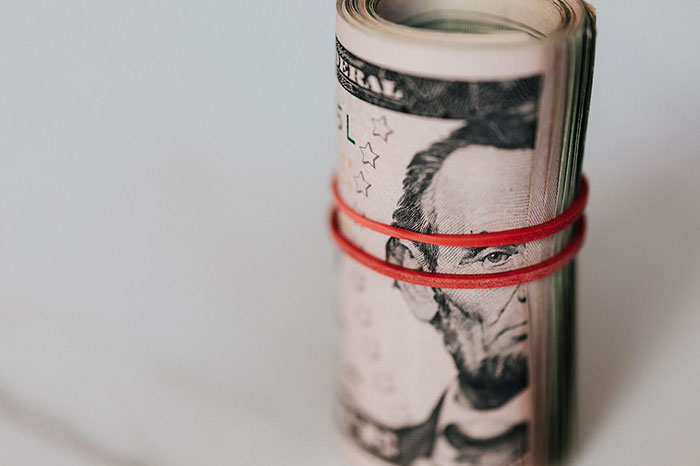
Image credits: Karolina Grabowska / pexels (not the actual photo)
“I travel to Italy to see family when I can and I noticed a difference in the two societies,” Amber told Bored Panda, discussing how she came to the realization that so many things have been paywalled in the US. “Our society pushes things that cost money instead of the basic natural answer. In Italy they do this far less, although as the rest of the world becomes more Americanized, sadly, I think we will see it more and more in other countries too.
“I think America is the most extreme but the more Americanized countries become, they will find themselves in the same boat, especially with social media and the spread of information,” Amber continued, suggesting that everywhere you turn in America there is an option to do all the things you want or need, but not without paying.
But that arguably wasn’t always the case. As a matter of fact, the way Americans spend their money has changed quite significantly over the years. According to the “100 Years of U.S. Consumer Spending” report, back in 1900, a US household would spend most of their money on food, and the gap between expenditure on that and other things—entertainment, for instance—was quite significant.
By 2000, the gap between food and entertainment, in regards to spending, had diminished; however, the expenses on housing, for instance, had increased quite notably compared to 1900. Data suggests that the size of healthcare-related spending remained more or less the same throughout the hundred years, with only a slight increase around the 2000s.
The question of whether or not money can buy happiness remains unanswered
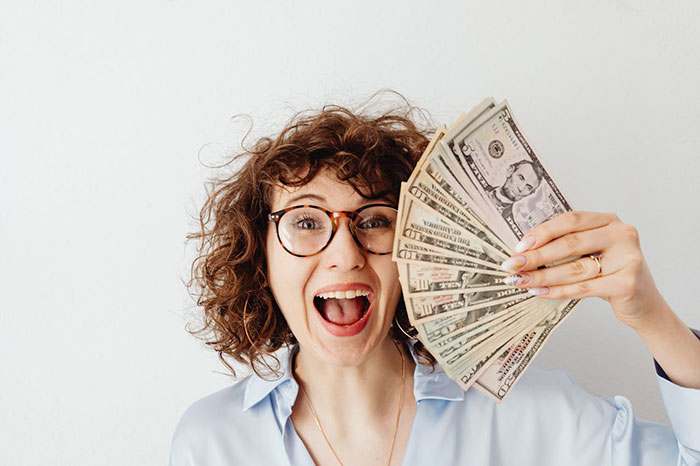
Image credits: Karolina Grabowska / pexels (not the actual photo)
Discussing how society got to the point of numerous basic needs being paywalled, the TikToker suggested that there might be several factors in play. “I don’t know exactly how we got here but corporate greed and the emphasis on money for happiness definitely plays a part,” she told Bored Panda.
Nowadays, the matter of whether or not money brings happiness seemingly remains a highly controversial topic. While some people believe that money can’t substitute all that we need to lead a happy life, others say that it can help by making it easier at least.
Some research seconds the latter approach. A study from 2010, for instance, suggested that more money doesn’t necessarily equal more happiness, but less money is linked with more emotional pain. It pointed out that $75,000 is likely to be “a threshold beyond which further increases in income no longer improve individuals’ ability to do what matters most to their emotional well-being, such as spending time with people they like, avoiding pain and disease, and enjoying leisure.”
A survey of over 2000 Americans found that for some, even $15,000 would make a meaningful impact in their lives. However, the average sum of money that would make a person happy, salary wise, at least, is roughly $285,000 per year (with men’s estimates ranging much higher than those of women—$381k and $183k, respectively). The survey also revealed that nearly six-in-ten Americans believe that money can buy happiness after all.
Bearing in mind that nowadays, few things in life are free, as Amber pointed out, people’s belief that their lives would be easier with money—consequently making them happier, too—is not that surprising. But while some expenses fall into the category of necessities, the non-essential spending, according to the TikToker, can be altered by changing our views.
“First step is awareness,” Amber suggested. “It would require a massive movement and change in the way we see everything, as we have been programmed since kids to constantly want more.”
Fellow netizens shared their views in the comments








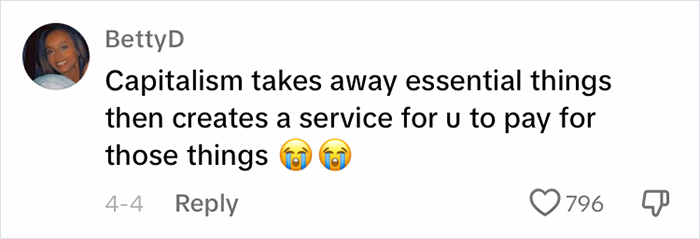




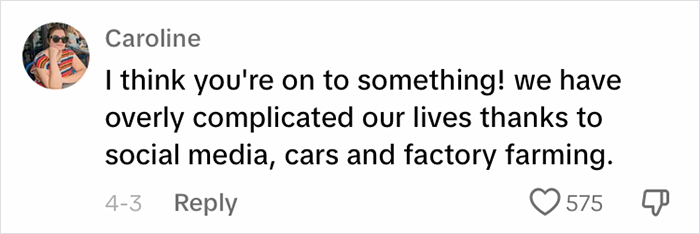

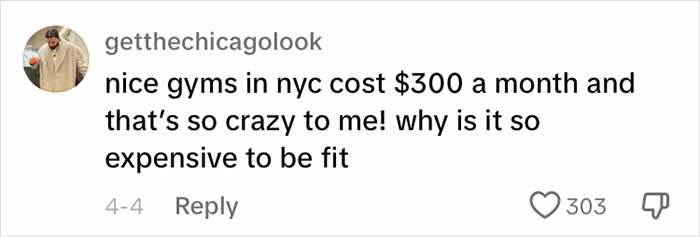
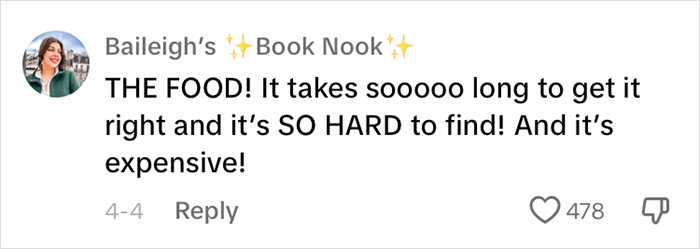

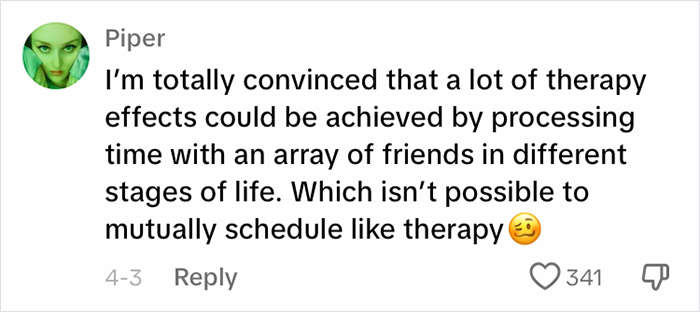


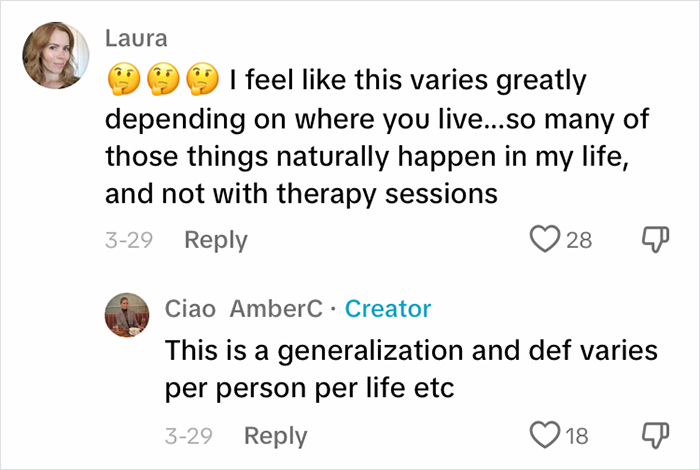
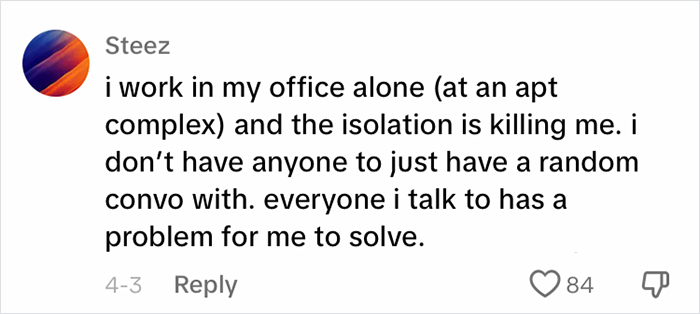

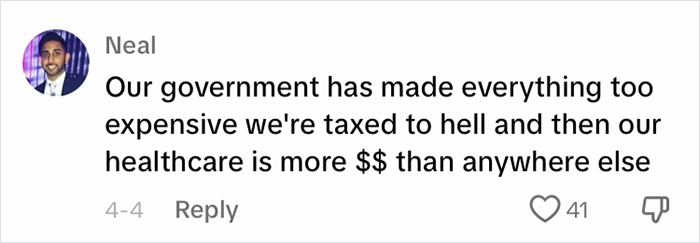
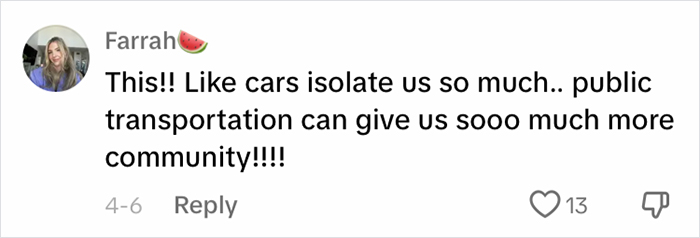
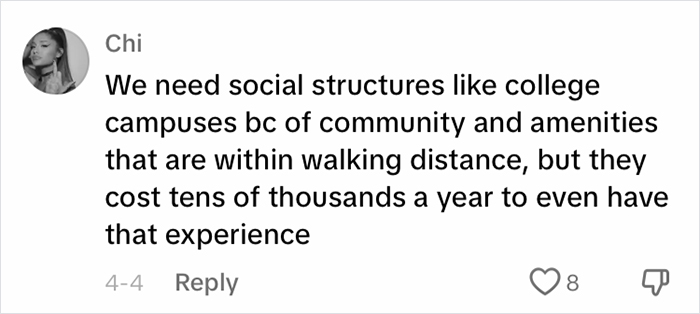


.jpg?w=600)





